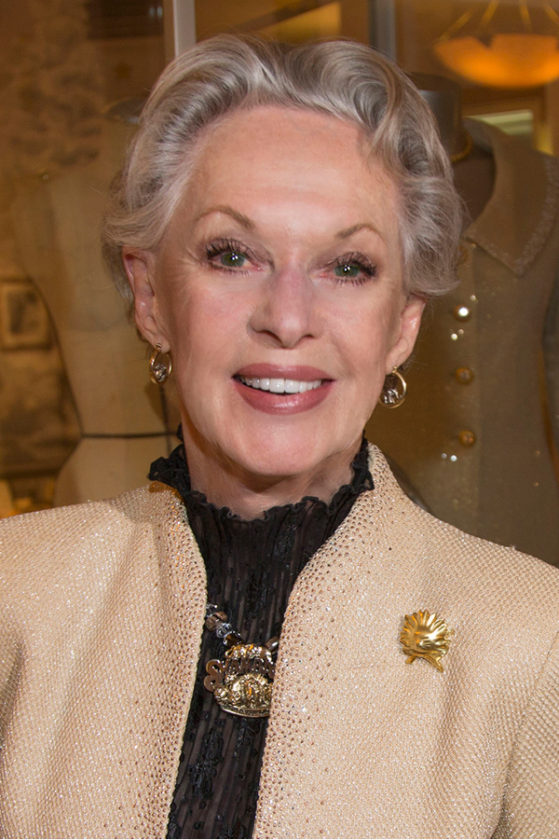The Actress and the Activist
For Jane Fonda, the Recipient of the Los Angeles Press Club’s Visionary award, It’s All Part of One Life
BY JON REGARDIEWe know Jane Fonda for her many iconic film roles: the sultry space babe in the 1968 romp Barbarella, the hard-driving reporter in the 1979 thriller The China Syndrome, the part of Chelsea in the tearjerker On Golden Pond, the alcoholic woman who wakes up next to a murdered man in 1986’s The Morning After.
Her onscreen talents have long been recognized. Fonda earned Academy Award nominations for the latter three films, as well as for her roles in They Shoot Horses, Don’t They? in 1969 and Julia in 1977. She won the Best Actress Oscar for playing a high-class call girl in Klute in 1971 and for Coming Home, the 1978 film in which she portrayed a woman who falls in love with a paralyzed Vietnam War veteran while her Marine husband is off fighting.
These roles and awards would define the legacy of virtually anyone who has ever worked in Hollywood. However, they barely begin to scratch the surface of Fonda.
Throughout her career, Fonda has never been content, like it seems so many young actors and actresses are today, to let fame be the end result of her celebrity. Instead, she has used her public persona to push for change by taking stances and actions that are sometimes adored and sometimes de- cried. There’s her work to stop violence against women, her attempts to help adolescents realize a better future, her focus on expanding women’s presence in the media and, of course, her famous and controversial opposition to the Vietnam War.
Fonda’s positions have not always been easy for others to accept. Additionally, some of her less glamorous efforts don’t grab much attention. Still, she has moved forward bravely and tirelessly, convinced in her convictions. Over the decades her activism has made life better for an untold number of people.
For her work in using her celebrity to improve life for others, the Los Angeles Press Club is proud to present Jane Fonda with its first Visionary Award, which is being handed out at the 2012 National Entertainment Journalism Awards.
Jane Seymour Fonda was born in New York on Dec. 21, 1937, to perhaps America’s most prominent acting family. In addition to herself and her father, Henry Fonda, there is her brother, Peter Fonda, and her niece, Bridget Fonda.
Her father’s career exposed her to acting, and after some stage work in the 1950s (including an appearance with her father in 1955 in The Country Girl), she exploded as a film actress in the ’60s. She appeared in films including Cat Ballou in 1965 and had a double shot with Robert Redford in 1966’s The Chase and Barefoot in the Park the following year. They’d work together again 12 years later in The Electric Horseman.
The accolades continued through the 1970s, though there was a notable slowdown for about six years—that was when she focused on voicing her opposition to the Vietnam War.
As Fonda recounts on her website, despite her film success, she felt a void in her life, and the expectant mother questioned its meaning. She was inspired to act after meet- ing and speaking with American soldiers who had returned from the war.
The firestorm moment came in 1972, when Fonda visited Hanoi. It was a time of fervor and political discontent. She was reviled by some and called Hanoi Jane. She was adored by others, who had never seen a movie star make her career second to her social and political beliefs.
After the war, Fonda continued her work on political and other causes. She provides the best explanation as to why.
“When the war ended, I continued my activism,” she writes on janefonda.com. “It brought meaning to my life. I could use my celebrity for a purpose greater than myself. It felt like I was coming home to where I was meant to be. I am, after all, the daughter of an actor (Henry Fonda) who played in films like The Grapes of Wrath, The Ox-Bow Incident, Twelve Angry Men, films about equality, justice, fairness. Unbeknownst to me at the time, I believe those values that mattered to my father penetrated me on a deep level, waiting for the time when I was ready to fight for them myself… in life, not just in film.”
Her film career regained its momentum in 1977, and some of her highlight roles followed, including her appearance with her father in On Golden Pond in 1981. She also produced the film—it would give Henry Fonda his only Oscar.
Film wasn’t the only place where she was a leading lady. Fonda released her first workout video in 1982, again challenging the public’s expectation of what an Oscar-winning actress should do (she’d go on to release 30 videos and DVDs over three decades).
Then, in 1990, Fonda retired from acting. It would be 15 years before she again stepped in front of the camera.
The activism, however, continues. Her early work on behalf of causes including the civil rights movement and the rights of Native Americans never dampened. She would go on to argue against the Iraq War.
Some of her work happens out of the limelight. Fonda is a founding board member of the Thomasville Community Resource Center, a Georgia nonprofit that provides after-school and youth-improvement programs, among other services.
The state has been the focus of more of her work. In 1995 she founded the Georgia Campaign for Adolescent Pregnancy Prevention. Her response to the state having the highest teen birth rate in the United States has paid off—the rate has fallen by 37% since the founding of G-CAPP. The organization continues to work to convince teens to delay sex or use contraception.
Fonda, a self-described feminist, has also been an outspoken advocate for women’s causes. She sought to raise awareness for the hundreds of unsolved murders of women in and around the Mexican city of Ciudad Juarez.
She has also worked to improve both journalism and the way women are represented in and portrayed by the media. In 2005, she joined Robin Morgan and Gloria Steinem to found the Women’s Media Center. The New York-based nonprofit works to ensure that women’s voices are heard and their stories are told in the mainstream media. While TV networks and newspapers are no longer the “old boys’ clubs” that they were decades ago, the organization advocates aggressively to ensure that there is gender equality in newsrooms and other realms.
Her autobiography My Life So Far came out in 2005. Considering the work she continues to take on, it may need an addendum. She recently appeared in Aaron Sorkin’s HBO series “The Newsroom” and plays Nancy Reagan in the up- coming The Butler.
There is no telling what will come next for Jane Fonda, whether in front of the camera or, more importantly, when one isn’t around.
Jon Regardie is a member of the Board of Directors of the Los Angeles Press Club and the executive editor of the Los Angeles Downtown News.



